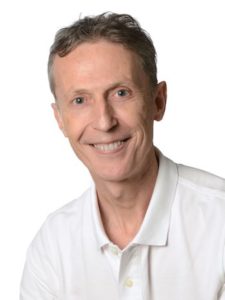Some learning is more transmitted than taught. Observation, touch, the kind of connection that does not rely upon words. We love to make sense, especially to ourselves. But the theories in our heads, the maps of thought that can point the way, but are not the way; these can lull us into a feeling we understand when in fact our understanding is limited and limiting.
Developing a way to sense directly. Learning from pre-modern books that show us another way of perceiving. And being able to be present to our own unfolding experience in an attentive way. These are more than skills; these are ways expanding our sensorium so that we can both get out of our way and at the same time be present with our patients in ways that can help us not to miss the clues and cues that our theory focused mind would certainly overlook.
Listen into this conversation on the benefit of old books and how sensing opens vistas that theory can only point towards.
In This Conversation We Discuss:
- Direct experience /working beyond concept
- Translating the treasure of a premodern Japanese book on manual medicine
- Learning through touch and direct experience
- Various perspectives modern and ancient all are part of the therapeutic encounter
- Bringing patients into the present using touch
- Meditation and Qi Gong are essential elements in developing a sense of presence and touch
- Treatment is like meditation with another person
- The unending learning that comes from the basics
- The map is not the territory when it comes to how the channels flow
- It is through practice that we integrate new ideas and ways of working
- Allowing information to come to you
- The intelligence and function of the extraordinary vessels
- The importance of receiving treatment from skilled practitioners
- Holding different theories as separate and allowing them to integrate through the practice
- Our job is not to fix people, but show them their strengths and to free their potential
- You know you’re on the right track when joy naturally arises
“The stresses of one’s private and public life, work, or social obligations can give rise to a multitude of causes for the stagnation of one’s ki. … By applying Ampuku techniques to the abdomen, however, one can smooth the flow of stagnant ki and hasten recovery from chronic illnesses.” Source: Ampuku Zukai
 Philippe Vandenabeele
Philippe Vandenabeele
From an early age, Philippe was fascinated by Eastern culture, lifestyles and bodywork. He began studying yoga in his teens and first travelled through Asia in his twenties. There he encountered shiatsu, which became his lifelong work and passion.
Shiatsu training
Philippe trained for three years at the International Shiatsu School in Belgium and Switzerland and for another four years at the Du Mai School, where he was also trained to become a teacher. He further studied at the Iokai School in Tokyo. For many years he returned to Japan on a regular basis, studying with experienced teachers to nourish and deepen his practice, before relocating permanently to Japan in 2019.
Philippe is a recognised Shiatsu teacher: he ran a Shiatsu school for 12 years in Sweden, and has been the director of the Shinzui Shiatsu in Belgium since 2006, also travelling extensively to teach at Shiatsu training centers worldwide.
Traditional Chinese Medicine (TCM)
In parallel, for the past 20 years, Philippe has studied TCM and obtained several diplomas, including the diploma of the Academy of Chinese Medicine Sciences in Beijing.
Thai Massage
He has regularly spent time in Thailand to follow intensive training with the great masters in traditional Thai massage, including 6 months’ intensive training in 1995.
Western Manual Therapy
Being fascinated by the body and continually seeking to understand more about its workings, Philippe keeps on studying anatomy and bodywork methods. He has been trained in Craniosacral therapy, Anatomy Trains, Functional Training, Fascia therapy, Visceral Manipulation and more.
Shinzui Bodywork Method
With 30 years of clinical and teaching experience, Philippe has consolidated his knowledge, insights and practical experience to develop his own unique approach: the Shinzui Bodywork Method.
Qi Gong
Philippe has also practiced, studied and taught Qi Gong over the last 20 years and he continues to give Qi Gong classes regularly. He trained in Qi gong at the National Medical Qigong Hospital and Training Centre in Beidaihe, China.
Links and Resources
Visit Philippe’s website
Here is a blog post that will give you a glimpse into the book that Philippe is translating
Join the discussion!
Leave a comment on Qiological’s discussion forums.
